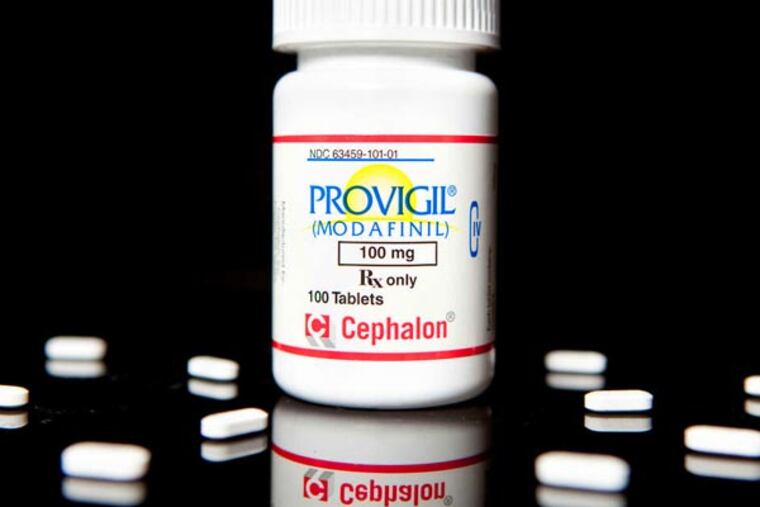Teva to repay $1.2B for Cephalon's conspiring with generic firms
The Federal Trade Commission said Thursday that Teva Pharmaceutical Industries Ltd., now the parent company of Cephalon, agreed to repay $1.2 billion in "ill-gotten gains" for pay-to-delay deals when the two companies were competitors.

The Federal Trade Commission said Thursday that Teva Pharmaceutical Industries Ltd., now the parent company of Cephalon, agreed to repay $1.2 billion in "ill-gotten gains" for pay-to-delay deals when the two companies were competitors.
The settlement came as a trial was set to begin Monday in U.S. District Court in Philadelphia.
In a 2008 lawsuit, the FTC alleged that Cephalon paid more than $300 million to four generic drugmakers, including Teva, to delay sales of their versions of Cephalon's blockbuster sleep-disorder drug Provigil.
Such agreements are referred to as "reverse payments," or "pay-to-delay" deals. They allow the brand-name company to keep profits from exclusivity in the market that are larger than the payoff to the generic firms. The U.S. Supreme Court ruled in 2013 that such deals can be scrutinized for antitrust violations.
The agreement announced Thursday is significant because it is the first FTC case settled since the Supreme Court decision. An odd factor is that Teva was on both sides of the arrangement in the dispute, having struck the deal with Cephalon before buying it and now having to pay the legal bills for Cephalon's wrongdoing.
Also, Teva became the world's leader in generic revenue partly by being the first to file applications for generic versions of brand-name drugs and by challenging brand-name patents.
Rutgers-Camden law professor Michael Carrier said the agreement is a "historic development in pay-for-delay litigation. This settlement confirms that the FTC had a strong case against Cephalon for paying generics not to enter the market. This shows that there is a significant risk of antitrust liability for other pay-for-delay settlements."
Cephalon might have faced generic competitors in 2006, but the deals with the four firms extended Provigil's exclusivity until 2012. Without generic competition, Provigil posted $4.7 billion in sales for 2006 through 2010, according to Securities and Exchange Commission filings.
The FTC said the money will go to compensate "purchasers, including drug wholesalers, pharmacies, and insurers, who overpaid because of Cephalon's illegal conduct." The agency said that Teva had already settled with some of those groups and that those payments would be credited against the $1.2 billion total. Any remaining money would go to the U.S. Treasury.
"Requiring wrongdoers to give up their ill-gotten gains is an important deterrent," FTC Chairwoman Edith Ramirez said. The settlement's consent decree bars Teva from similar arrangements with brand-name drugmakers.
Teva spokeswoman Denise Bradley said Teva was "pleased to have reached an agreement." She added that the consent decree "is the right path for our company, for the industry and for the patients we serve."
Cephalon was based in Frazer, Chester County, until Teva bought it for $6.8 billion in 2012. Teva is based in Israel; its Americas headquarters is in North Wales.
Jeffrey Brennan, an antitrust lawyer in Washington, is a former chief of the FTC's health care division.
"It's certainly a big number, and a billion is a lot of money," said Brennan, who added that because it was a settlement and not a court decision, judges in future cases like this will look to the Supreme Court's 2013 case for guidance. "The Supreme Court's rule of reason will apply, and the outcomes will be fact specific and dependent on the weight of the evidence."
215-854-4506
@phillypharma